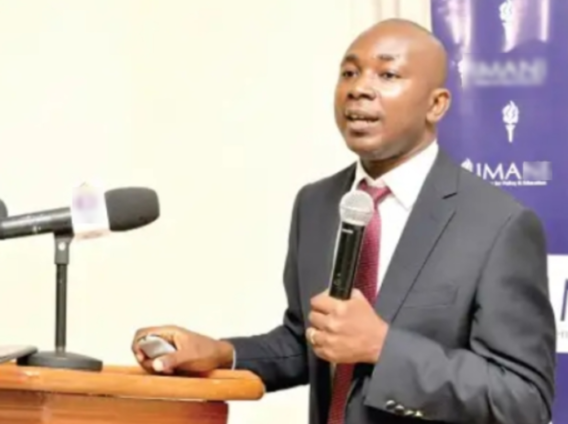As the cost of living in Ghana continues to rise, a professor of finance and economics is urging the government to focus on reviving agriculture as a key strategy to ease the burden on households.
Speaking on Joy FM’s Super Morning Show on Wednesday, November 20, Prof Godfred Bokpin explained that addressing the country’s economic challenges will require strategic planning, particularly in the first three months of the incoming government, regardless of the election outcome.
According to Prof Bokpin, agribusiness should be prioritised to reduce food prices, create jobs, and stimulate the economy. With the average Ghanaian spending up to 44% of their disposable income on food, Prof Bokpin believes that tackling food price inflation could bring immediate relief to struggling families.
“If we can bring food prices down significantly, we would directly help Ghanaians by freeing up more of their income,” he said. “This could also create space for savings, which is essential for long-term economic stability.”
He further explained that the lack of savings at the household level is a major barrier to economic growth, as it limits capital accumulation. “Without sufficient savings, it’s difficult to take advantage of economic opportunities,” Professor Bokpin warned.
Beyond food security, Prof Bokpin stressed that agro-processing could create formal jobs and increase tax revenues. Despite agriculture contributing about 26% of Ghana’s GDP, it accounts for less than 1% of tax revenues due to the informal nature of the sector.
“Agriculture is job-rich,” he said. “By modernising and formalising this sector, we can create stable employment opportunities and generate much-needed tax income.”
Prof Bokpin also pointed to inefficiencies in public spending as another issue, noting that infrastructure projects like interchanges often come with inflated costs compared to international standards.
Ultimately, he believes that focusing on agriculture and its related sectors should be a top priority for any government aiming to tackle poverty, reduce inequality, and create sustainable economic growth in Ghana.
Agriculture is a vital sector for Ghana’s economy, contributing around 26% of the country’s Gross Domestic Product (GDP) and employing approximately 40% of the workforce. Historically, Ghana’s economy has been driven by agriculture, with crops like cocoa, maize, cassava, and plantain playing a central role in both domestic consumption and export. Cocoa, in particular, is a major foreign exchange earner, positioning Ghana as one of the world’s largest cocoa producers.
Despite its importance, the agriculture sector faces several challenges, including low productivity, climate change, ageing farmers, and limited access to modern farming technologies. The majority of farmers are smallholders who still rely on traditional farming methods, and post-harvest losses due to inadequate storage, and transportation facilities remain a significant issue.
In recent years, the government has implemented programmes like Planting for Food and Jobs (PFJ) to boost food production, create jobs, and reduce reliance on food imports.
Latest Stories
-
Take proactive approach to integrate sustainability-related risks in your operations – Deloitte Assurance Partner to businesses
3 mins -
NDC is training thugs to disrupt December elections – NPP alleges
6 mins -
Susan Adu Gyamfi closes the year with new single ‘Yedawase’
7 mins -
Producer Price Inflation rises to 33% in October 2024
10 mins -
Total pension funds hit GH¢84bn as of quarter 3, 2024
13 mins -
German Ambassador urges Ghana’s next gov’t to prioritize issues of climate change
14 mins -
53 pistols, 74 magazines, live rounds uncovered at Tema Port
17 mins -
Nana Kwame Bediako criticises poor leadership and calls for change
22 mins -
Ketu South MP commissions 10-bed ultra-modern paediatric emergency unit
25 mins -
LuccaHealth Medical Specialty Center Director Lynda Aboagye honoured at Ghana Philanthropy Awards
32 mins -
New BoG head office will reduce cost of operations – Dr. Addison
39 mins -
We’ll reject donations from proceeds of galamsey – Catholic Church to members
49 mins -
Ghana Commodity Exchange’s Albert Nii Ayi Tagoe awarded as CFO of the year 2024
58 mins -
Coaches were dismissed for less, sack Otto Addo – Kim Grant fumes
1 hour -
Italian Serie A: Genoa names Patrick Vieria as new head coach
2 hours

